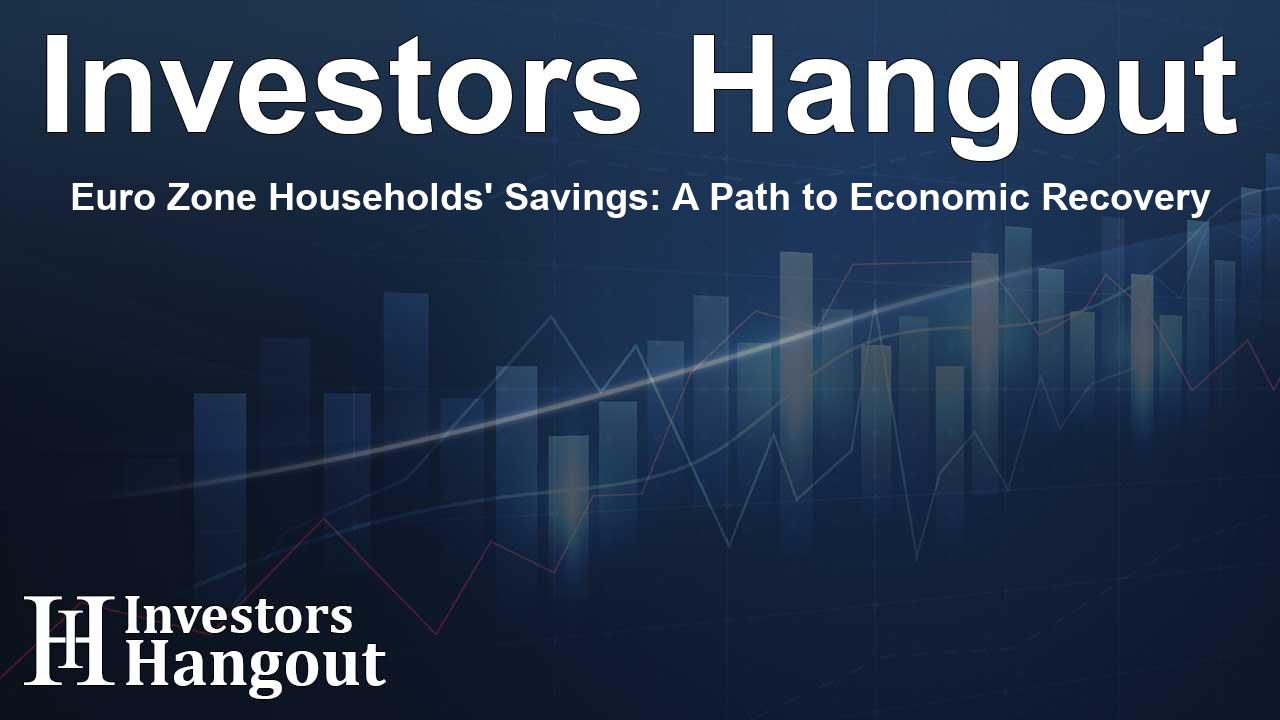Euro Zone Households' Savings: A Path to Economic Recovery

Understanding Households’ Savings Trends in the Euro Zone
In recent discussions regarding economic trends, it is evident that households in the Euro zone are tightening their financial belts and focusing on saving. According to the European Central Bank (ECB), many families are prioritizing the rebuilding of their wealth that was eroded due to soaring inflation. This behavior shows no signs of abating soon, which could have implications for the economy's overall growth trajectory.
A Shift Towards Higher Savings Rates
The ECB has highlighted a significant trend—a notable portion of disposable income is consistently being saved. Currently, Euro zone households are saving around 15.7% of their disposable income. This figure is noteworthy when compared to pre-pandemic levels, which hovered between 12% to 13%. Such levels of saving indicate not just a cautious approach, but also a response to the economic climate marked by inflation.
Inflation's Impact on Household Wealth
The backdrop to this increased saving is the inflation surge experienced during the 2021/2022 period, which severely impacted the purchasing power and real net wealth of many households. As the ECB pointed out, families are motivated to save more as a direct response to regaining their lost wealth. This inflation spike has forced many to rethink their expenditure habits, pushing them towards a more conservative financial approach.
Current Economic Climate and Future Spending
Despite the high savings rate prevailing among households, consumption within the Euro zone has not seen the anticipated boost. The ECB has previously projected that a resurgence in consumer spending would drive growth. However, given the current savings behavior, this recovery appears to be lingering further away.
Projected Recovery Trends
Interestingly, the ECB remains optimistic about a potential rebound in household expenditures. They suggest that as the saving rate begins to lower slightly, coupled with continued robust growth in real labor income, we might witness a revival in private consumption. This shift could provide a much-needed momentum for the Euro zone's economy, which has been hovering just above stagnation.
The Path Forward for Euro Zone Households
Looking ahead, it’s clear that Euro zone households will likely continue saving at elevated rates as they work to recover from the impacts of inflation. The ECB's insights paint a picture of both caution and hope: while the immediate effects of high savings may impede consumption growth, the potential for an eventual recovery always remains on the horizon. As households rebuild their wealth, one can hope that economic dynamics could pivot towards a more vibrant growth trajectory in the near future.
Frequently Asked Questions
Why are Euro zone households saving more now?
Households are saving more to rebuild wealth lost due to high inflation, as well as to adapt to the current economic climate.
How much of their income are households saving?
Currently, Euro zone households are saving approximately 15.7% of their disposable income, which is a significant rise from pre-pandemic levels.
What has caused the high inflation rates?
The inflation surge experienced in 2021 and 2022 has significantly impacted households' real net wealth, prompting increased savings.
Will household spending eventually recover?
The ECB remains optimistic that household spending will eventually rebound as the saving rate decreases and labor income continues to grow.
What might be the long-term effects of the current savings trend?
In the long run, while the current savings trend may suppress immediate consumption growth, it could lead to stronger financial foundations for households and a more robust economic recovery.
About The Author
Contact Henry Turner privately here. Or send an email with ATTN: Henry Turner as the subject to contact@investorshangout.com.
About Investors Hangout
Investors Hangout is a leading online stock forum for financial discussion and learning, offering a wide range of free tools and resources. It draws in traders of all levels, who exchange market knowledge, investigate trading tactics, and keep an eye on industry developments in real time. Featuring financial articles, stock message boards, quotes, charts, company profiles, and live news updates. Through cooperative learning and a wealth of informational resources, it helps users from novices creating their first portfolios to experts honing their techniques. Join Investors Hangout today: https://investorshangout.com/
The content of this article is based on factual, publicly available information and does not represent legal, financial, or investment advice. Investors Hangout does not offer financial advice, and the author is not a licensed financial advisor. Consult a qualified advisor before making any financial or investment decisions based on this article. This article should not be considered advice to purchase, sell, or hold any securities or other investments. If any of the material provided here is inaccurate, please contact us for corrections.
